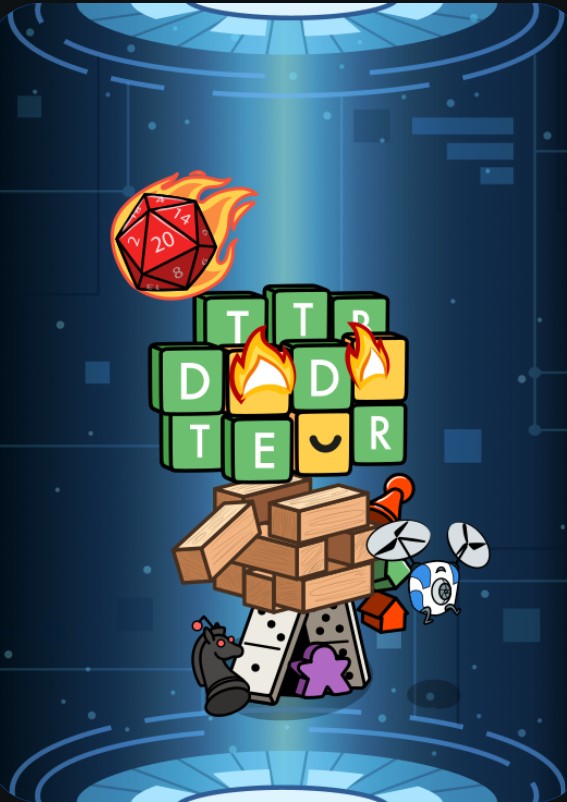So, I’ve been chatting with my buddies lately, and it’s turned into a bunch of debates about right and wrong. I think I have a pretty solid moral compass, I’m not bragging haha, but most people I know can’t really explain why something’s right or wrong without getting all circular or contradicting themselves.
So, how do you figure out what to do? No judgment, just curious. I’ll share my thoughts below.
Thanks!
Edit: Oh, all you lil’ philosophers have brought me a cornicopia of thoughts and ideas. I’m going to take my time responding, I’m like Treebeard, never wanna be hasty.
Pee when you have the chance.
When going out into the cold during the winter, especially if you are going on a bit of multi hour journey … poop first, even if you don’t feel like it.
How do you poop when you don’t feel like it?
I’m caught in a loop.
deleted by creator
Hahaha, I know right!
- don’t be an asshole
- everything is allowed as long as nobody is getting hurt
- act when you see something wrong
- when you are able to help do so
- in all other cases mind your own business
everything is allowed as long as nobody is getting hurt
Context is important here. Oftentimes someone is getting hurt, you just don’t know who or when. A very fine line on this bullet.
It’s worse than that. Situations where something causes no harm to literally anyone are few and far between. Even less often you have a full and clear picture of a situation. Usually it’s a choice between who gets hurt to what extent and based on what you know you just try to minimize the damage. You will get it wrong a lot.
Life is complicated and all we can do is to try our best and hope others will too.
Very well put
Leave a better world behind than you entered (to the extent you are able to as an individual).
The cub scouts have a rule: leave the camp better than you found it
It’s a great rule to apply to everything in your life. Small improvements add up over time and benefit those who come after
Define better for me
There are lots of different meanings. Pick one. Make people happy. Leave something that will help the next generation, whether it’s planting trees or a park bench or curing cancer. Be kind to people along the way to enable them to see the best in humanity. There are lots of ways to make things better. Just pick one and do it.
I’m not asking for general ideas, do you have a definition you ascribe to, or does it just change to suit the situation
Rather, why are you unable to define it for yourself? It’s not that hard. Helping things towards balance (like helping any angry, sad, or greedy person to be less so, etc., or trying to heal a physical or emotional wound as appropriate) is a fine start.
How about instead of assuming i’m dumb, you answer th… no fuck it. I dont think theres any value to be had here. Goodbye.
Pushing 4 decades, and the older I get the more I try to live by a philosophy of: be the person you wish you had when you were in their shoes.
Biggest thing is school right now: I did the college thing a bit a long time ago, struggled academically and financially, joined the military instead, separated, and now I’m back for round 2 using the GI Bill. I try to generate as many resources for my classmates as possible, run study groups, host group chats, send out reminders… The VA gives me a stipend for supplies each semester, which I’ll use in it’s entirety and give those supplies to the class. At clinicals (on-the-job education - nursing school) I’ve noticed a few students don’t eat cuz weren’t able to pack a lunch and hospital cafeteria food is WAY expensive for the average broke-ass college student, so I’ll cover the odd meal and tell em to just pay it forward once they get their RN. Shit like that. Kinda feels like I have 50 sons and daughters lol. But I remember my first attempt at college and how overwhelming everything felt… idk if having a ‘me’ would have made any difference in the outcome of round 1 - can’t make the horse drink and all - but if I can hook these kids up with an easier ride, then fuck yeah I’ll do what I can!
I try to apply that kind of approach to pretty much any context - be it school, work, or just random encounters with people.
Feels good to be helpful.
This fits very nicely in my belief system as well. For me the reason to life is to make it simpler/easier for the people who come after me. And thinking about what I needed and supplying that to others is a very nice way to achieve this. Although this could sometimes lead to doing something that is not needed (anymore), but even then showing others that helping others is a nice thing to do is worth a lot.
This is the best advice I’ve heard in a long while
A good starting place is considering what society would look like if everyone did whatever thing.
Everyone steals - doesn’t work
Everyone murders - dosen’t work
etc.
Another approach is the Terry Pratchett argument that everything boils down to just not treating people like things.
So, like the Kantian categorical imperative?
well yeah but I was trying to make the language less obtuse
- etc.
From an old Irish friend I’ve known for many years
Whatever you do in life, no matter the situation or circumstances … always be kind
Great philosophy, gotta make sure people dont take advantage of that though.
It also acts as a filter in life … whenever you meet unkind people, you stay away from them
Whenever you meet people who would take advantage of your kindness … you kindly stay away from them
When you meet other kind people, you do your best to stay with them, live with them, work with them or encourage them
Everyone always remember a few key things in life … people remember others who were unkind to them … people also remember people who were kind to them.
Life is short and it gets shorter every moment … whatever you do in life … just be kind … because most of the people you will ever meet you will only ever know for that one moment or just for a very short time.
Being kind to yourself counts as well.
deleted by creator
And if we err, let it be toward kindness.
Maybe it’s kind to not let people take advantage, force them to rely on themselves, thats a kindness.
Hello babies. Welcome to Earth. It’s hot in the summer and cold in the winter. It’s round and wet and crowded. On the outside, babies, you’ve got a hundred years here. There’s only one rule that I know of, babies-“God damn it, you’ve got to be kind.”
Don’t be a dick.
Shut up, Wesley
Never drink alcohol alone.
That doesn’t save me from bad environment, but it prevents a Huge otherwise potential risk
I recently have added a don’t eat/drink sugar alone for me 😊
My ethos boils down to…
- The Golden Rule: Your rights end where other’s rights begin, and vice versa.
- Natural Rights: Any action or inaction, thought, or word, spoken or written, that does not cross the line of the Golden Rule is a natural right.
- Ethics: All ethics are founded upon, and entirely dependent upon, points 1 & 2.
- Morality Is Unethical: Morality, allowing for arbitrary precepts, is inherently unethical.
- Effort: Strive to live ethically.
- Inaction is Action: Inaction is, itself, an action. If your inaction results (even indirectly) in someone’s natural rights being infringed, your inaction is unethical.
- Consideration: Actions often have cascading, indirect consequences, and you bear full responsibility for them. Therefore, failure to consider the indirect consequences of your (in)actions is also unethical.
- Graciousness: Treat others the way they wish to be treated. Recognize the dividends that gracious behavior has on preserving the natural rights of both yourself and others.
- Defend the Social Contract: Ethical behavior is a contract between individuals. Aggressors and instigators who violate that contract are not subject to its protections. As such, adherents are obliged to defend both themselves and others from such infringements to preserve the greater social stability.
- Imperfection: Acknowledge that no body, no thing, and no system is perfect. Not you, not others, not nature, not these precepts. Mistakes are inevitable, it is the effort and intention that matters. Accept and treasure imperfection, and be faithful to the spirit rather than the letter.
Be kind.
Logic is the wrong tool for ethics. In formal logic, you can only assign values like true or false to something called “descriptive statements”. These are statements of fact, that can be observed.
Morality deals with “prescriptive” statements. Unobservable and unstable statements about how the world ought to be.
Logic breaks down because it’s impossible to argue for something that should be using only facts about how thing are.
The prescriptive statement “it’s wrong to harm” relies on the prescriptive statement “harm is bad”. Their is no bottom to it.
Well if we follow that to its conclusion I may as well delete the thread and try not to think about it.
This is one of the biggest problems going on right now. That people don’t have a knowledge of their own morality, not in any tangible, processed way. People resort to following a person who they believe has the morality they seek, but their own decisions are actually based on a combo of feelings and whatever dogma they may have with no real analysis or improvement being done with any consistency. It would fix a hell of a lot of problems if your average person was breaking down the implications of their own morality and developing a defensible philosophical position. For most I observe that is farther than the average person is willing to parse. It seems that this has led many to base essentially their entire philosophy of right vs wrong (as far as they can actually explain it without just saying “God”) on a series of impactful sounding, but ultimately hollow, sound bites or snappy retorts that don’t have any actual substance.
I wholeheartedly agree, and as funny as this sounds, I just started writing a manifesto about this yesterday lmao.
I think the main issue is the way morality is framed in neoliberalism, many religions etc.—as something prescriptive. We follow laws not because of some internal moral principles, because we conform to authority and fear punishment. This isn’t rational but deeply instinctual, and it leads to immoral action. Similarly, I think tribalism is a consequence of instinctual action and probably one of the main causes of evil in the world. Racism, nationalism, xenophobia, homophobia, etc. can all be explained in this framework. We need to educate people to recognize instinct and transcend it. A political system, however perfect, cannot be forced on people who aren’t ready for it.
I try to live my life happily while causing the least negative impact for others.
Most other animals develop rapidly from birth to self sufficiency, while humans are born so very unfinished - totally dependent on others for our most basic needs, for years and years. If any values can be said to resonate with “human nature”, it’s prosocial and community-building values.
Just about every major religion glorifies some version of The Golden Rule - do unto others as ye would be done by.
Yep, that all tracks for me, is there anything underneath the golden rule, a more base rule, if you will.
Like what about people who have different lines over what would trigger a physical response to hostility? One guy might only respond to direct physical attacks, and another will respond to verbal threats of physical attacks. Who’s right?
I don’t think you can boil it down further, and that’s why Western law is an evolving patchwork of codes and penalties that vary from jurisdiction to jurisdiction. Too many nuances, situational factors, edge cases and value priorities that vary from persn to person (and culture to culture) to decide every imaginable scenario consistently.
If you’re not familiar, you might gain some perspective from a summary read about Goedel’s Incompleteness Theorems. Goedel’s Proof deals with systems of logic, where logic is something we hope for in systems of law. Goedel’s Proof shows that a “sufficiently powerful” system of logic is necessarily incomplete - that is, we can pose problems in mathematical-systemic terms that have no solutions under that system.
In mathematical logic we have “axioms” like “1+1=2” or “a triangle is a plane figure defined by exactly 3 lines”. In law, axiom-like propositions are called “maxims”, often stated in Latin, and convey foundational legal principles like “contracts must be honored”, or “people can own things”. In a hypothetical properly Communist society, and by “proper” I mean to exclude failed would-be Communisms like the USSR or PRC, “people can own things” isn’t necessarily a maxim; they might instead have a maxim that codifies “things belong to the State” and exclude any notion of individual ownership.
The implication for legal systems is that there are inevitably legal disputes that can’t be decided strictly by the letter of the law, so we have to fall back on fiat of judicial opinion.
I think you might be approaching this in the wrong way. There is no objective right or wrong when it comes to ethics. Life and humans are simply too complex to create simple, objective rules that would be interpreted in exactly the same way by a decent number of humans for a reasonably complex situation. And you don’t even have to include ethical dilemmas for that, like deciding whether to shoot down a plane hijacked by terrorists or interrogating a kidnapper via torture.
Nonetheless, many homogeneous groups get to a decent degree of ethical alignment, and asking people for their ethical rules or guidelines is an interesting question to get inspiration and to find out how others try to navigate the complexity of the world. Just don’t expect these rules to be objective.
To paraphrase Dr. Who, this has always stuck with me: Never be cruel, never be cowardly. Remember – hate is always foolish…and love, is always wise. Always try to be nice, and never fail to be kind.
Reminds me of the Stephen Moffat poem, they used it heavily in Dr who at one point.
"Demons run when a good man goes to war,
Night will fall and drown the sun,
When a good man goes to war.
Friendship dies and true love lies,
Night will fall and the dark will rise,
When a good man goes to war.
Demons run, but count the cost;
The battle’s won, but the child is lost."











